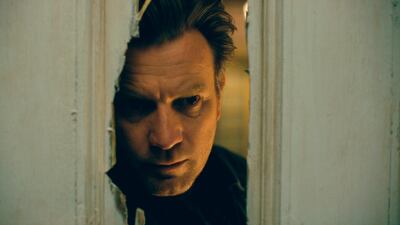It's difficult to define what makes a great horror movie. For a genre that's often considered formulaic, I actually think it's one of the toughest to get right. It's about balance – getting in the perfect amount of jump-scares, suspense, psychological undertones and that je ne sais quoi that makes the hairs on your arm stand on end, while also building a plotline that stays with you long after the lights go out.
Every time you re-watch a good horror movie you should see something new, something you didn’t see the last time because you were too busy freaking out. A truly great horror movie has layer upon layer upon layer. Stanley Kubrick understood this well.
That's perhaps one of the biggest reasons I was disappointed by the film adaptation of Stephen King's 2013 novel Doctor Sleep. Don't get me wrong, it's not a bad movie, and I thoroughly enjoyed revisiting the Overlook Hotel, but when you compare it with Kubrick's The Shining – inevitable given that it's the sequel – it fell far short.
Let's take another recent King adaptation – Pet Sematary. The 1989 version haunted my dreams (as did John Lithgow after I watched Dexter) , but the 2019 remake didn't measure up. Sure, it made me jump and occasionally cover my eyes – but that's about it. As soon as I left the cinema I'd moved on, never to think of anything from that film again, other than my disappointment.
Before that, there was 2018's remake of Halloween, following on the back of one of the most popular horror series of all time, one that pioneered the slasher flick. In it, Jamie Lee Curtis returns to the silver screen as Laurie Strode, and yet it resorted to the same old gimmicks and unsubtle tricks to spook its audience. You could argue that's staying true to the original, but I'd rather see these remakes turn something old and – let's face it – now overdone into a film that feels nostalgic yet fresh. It certainly didn't break any ground in 2019.
Don't even get me started on It Chapter Two. That's just two hours and 50 minutes of my life I can't get back.
But then there was a saving grace: Jordan Peele's Us. Now, if you want to know what a good modern horror movie should look like, then that's a great example. It's sinister, scary and, most importantly, you'll want to talk about it from the moment the credits roll (because before that you wouldn't dream of missing a single second). Peele plays with the genre, in this and his debut Get Out, in a way I haven't really seen any other director do.
Netflix series The Haunting of Hill House (created and directed by Mike Flanagan, who is also responsible for Doctor Sleep) is another great example. The show has its viewers on the edge of their seats without resorting to loud noises and unnecessary gore. It's all in the suspense and subtleties of storytelling. I only hope the second series, The Haunting of Bly Manor, set to drop next year, follows the trail blazed by its predecessor.
As you can tell, I'm a big fan of horror, but when you watch as many of the genre's films as I do, you can become jaded. But perhaps instead of lamenting their creators, I should simply lower my expectations, stop overthinking and buckle in for the ride.


